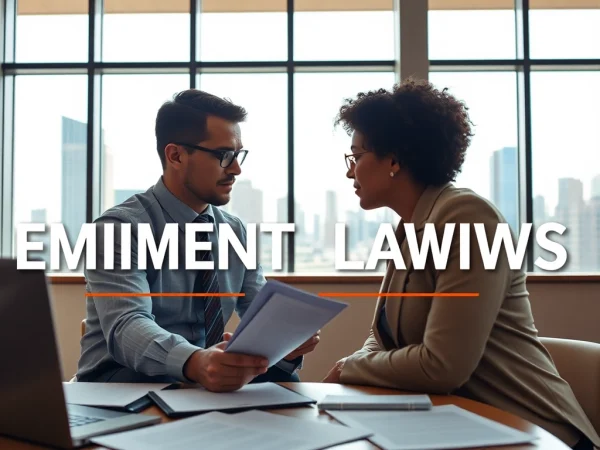Understanding the Role of an Eminent Domain Lawyer in Property Cases
The Basics of Eminent Domain Law
Definition of Eminent Domain
Eminent domain is a legal principle that allows governments to take private property for public use, provided they offer just compensation to the property owner. The power of eminent domain is rooted in the government’s authority to ensure the welfare and safety of the community as a whole. This means that, under certain circumstances, a government can seize land for infrastructure projects such as roads, schools, and public utilities.
History and Evolution of Eminent Domain
The concept of eminent domain has deep historical roots, tracing back to English common law. The term originates from the Latin phrase “dominium eminens,” which translates to “superior ownership.” Over the centuries, eminent domain has evolved significantly, particularly with landmark Supreme Court cases that have defined its limits and applications. In the United States, the Fifth Amendment of the Constitution expressly states that private property cannot be taken for public use without just compensation, framing the legal landscape for subsequent cases and legislation.
Key Terms to Know
- Just Compensation: The fair market value of the property at the time it is taken, which the government must pay to the owner.
- Public Use: A broad category that permits the government to take property for various community purposes, including roads, parks, and schools.
- Inverse Condemnation: When a property owner claims that their property has been effectively taken by the government without formal condemnation proceedings.
- Condemnation: The legal process by which the government exercises its right to take private property under eminent domain.
When to Hire an Eminent Domain Lawyer
Signs You Need Legal Assistance
Navigating the complexities of eminent domain law can be daunting, especially for property owners. There are several indicators that it may be time to consult an eminent domain lawyer:
- You receive a notice from the government about a potential taking of your property.
- The compensation offered does not reflect the fair market value of your property.
- Your property is being taken for a project you believe does not serve the public interest.
- You are facing a complex legal dispute regarding the property valuation or the government’s right to take your property.
Understanding the Legal Process
The legal process involved in eminent domain typically begins with the government declaring the necessity of taking private property for public use. Once this declaration is made, the government must provide notice to the property owner and offer just compensation. If the owner disputes the compensation amount, negotiations may ensue, often culminating in formal litigation in court to resolve the matter. Understanding each step of this process is crucial for property owners to protect their rights and receive adequate compensation.
Cost Considerations
Hiring an eminent domain lawyer involves considering various cost factors. While legal fees can vary widely, it’s important to understand that many attorneys work on a contingency basis, meaning they take a percentage of the compensation awarded rather than charging hourly fees. This can be significantly beneficial for property owners as it reduces the upfront financial burden. Still, property owners should ensure they have a clear agreement about fees and payment structures before proceeding.
Choosing the Right Eminent Domain Lawyer
What to Look For
When selecting an eminent domain lawyer, it is essential to consider several factors:
- Experience: Look for a lawyer with a track record of handling eminent domain cases successfully.
- Specialization: An attorney who specializes in real estate or property law will have a deeper understanding of the nuances in this field.
- Client Reviews: Research testimonials and reviews from previous clients to gauge satisfaction and outcomes.
- Communication Skills: Choose a lawyer who can communicate complex legal terms in an understandable manner, keeping you informed throughout the process.
Questions to Ask Potential Lawyers
Before hiring an eminent domain lawyer, it’s vital to ask the right questions to ensure they are the best fit for your needs:
- What is your experience with cases similar to mine?
- What is your fee structure, and how do you handle costs related to litigation?
- Will you be handling my case personally or delegating it to another attorney?
- What strategies do you typically use in eminent domain cases?
Evaluating Experience and Expertise
Experience is paramount when it comes to navigating eminent domain cases effectively. Beyond years of practice, look for a lawyer’s familiarity with local laws and procedures, their history of negotiations with government entities, and their success rates in court. In addition, assess their understanding of real estate valuation to ensure they can advocate effectively for fair compensation on your behalf.
Strategies Employed by Eminent Domain Lawyers
Negotiation Techniques
Effective negotiation is a critical skill for eminent domain lawyers. They often employ a range of strategies to advocate for their clients, including gathering comparative property sales data, engaging appraisers, and utilizing expert testimony to substantiate claims for increased compensation. Additionally, they may negotiate alternative solutions that could benefit the property owner beyond mere monetary compensation, such as relocation assistance or additional property rights.
Litigation Strategies
When negotiation fails, eminent domain lawyers prepare for litigation. This process involves extensive legal research, filing appropriate motions, and preparing for trial. Lawyers may challenge the government’s claim of public use, question the necessity of property seizure, or argue for higher compensation based on market analyses. Preparing a strong legal case requires detailed documentation and skilled argumentation to present the best possible case before a judge or jury.
Dealing with Government Entities
Navigating the complex bureaucracies of government entities is one of the substantial challenges in eminent domain cases. Eminent domain lawyers often have established relationships with local agencies that can facilitate smoother negotiations. They understand the regulations and policies in place and can leverage this knowledge to advocate for their clients effectively, ensuring their rights are protected throughout the process.
Impact of Eminent Domain Cases on Communities
Effects on Property Owners
The impact of eminent domain on property owners can be substantial, leading not only to financial considerations but also emotional turmoil. Losing a family home or ancestral land can be deeply distressing. Additionally, some owners find the process of negotiating compensation frustrating and opaque, particularly if they do not have adequate legal representation. Understanding their rights and building a robust case can empower property owners against potential injustices.
Community Development Implications
While eminent domain can facilitate important public projects, it can also lead to significant community changes. Infrastructure projects—such as highways, parks, and public buildings—can offer economic benefits, but they may also lead to demographic shifts, displacing longtime residents. Communities should weigh these changes carefully, balancing development needs with the rights of existing property owners, and consider methods to mitigate adverse effects on those displaced.
Case Studies of Eminent Domain Outcomes
Exploring past eminent domain cases reveals a variety of outcomes and community reactions. In one instance, a city’s expansion of a public transit system required the acquisition of multiple properties, resulting in legal battles over compensation and community engagement. In another case, a government project aimed at revitalizing a neighborhood met with resistance from property owners who felt that their voices were not heard during the planning process. Analyzing these cases underscores the complexity and necessity of transparency throughout eminent domain processes—highlighting the invaluable role of an eminent domain lawyer in representing property owners’ interests.








